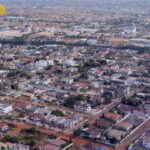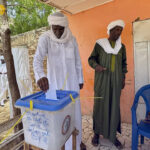The war raging in Sudan between the regular army and its former ally is of growing concern to neighboring countries. This fierce battle for power will have negative repercussions on the economy of the entire region.
In a recent note published on April 24th, Moody cautions regional multilateral banks against the risk of downgrading their ratings due to their exposure to Sudan. Banks such as the Trade and Development Bank, the East African Development Bank, and Afreximbank, based in Egypt, are cited as institutions that could suffer from the conflict. These regional banks also operate in Chad, Egypt, Ethiopia, and South Sudan, all of which are neighboring countries that would be impacted by the war in Sudan.
These banks play a crucial role in Sudan, especially since the International Monetary Fund (IMF) and the World Bank suspended their assistance programs after the army ousted the transitional prime minister and seized power three years ago. As a result, regional banks have become creditors to Sudan, providing financing for its imports of essential commodities such as food and fuel.
South Sudan is the neighbor with the most to lose in the immediate future
Among the neighboring countries, South Sudan is at the greatest immediate risk. The country seceded from Sudan in 2011, gaining control over most of the hydrocarbon reserves and relying heavily on oil, which contributes to 95% of its state revenue. However, the oil is exported through pipelines that pass through Sudan to the Red Sea, and disruptions in shipping have already been reported during the conflict. A complete disruption of this oil route would be disastrous for both South Sudan and Sudan, as it would impact their budgets and royalties. Paramilitary forces in Sudan, such as those led by Hemedti, are reportedly targeting this oil route to weaken the budget of the regular army, which relies heavily on tax revenues.
In addition to economic impacts, the conflict in Sudan is also causing a humanitarian crisis. The truce accepted by the two parties is expected to facilitate the exodus of inhabitants from conflict zones, resulting in an influx of refugees into neighboring countries. Chad, which has already received 20,000 Sudanese refugees, has reported a sharp rise in prices of basic foodstuffs in border regions. Egypt, another host country for Sudanese refugees, is also closely monitoring the situation to safeguard its interests.
For the moment, gold mining does not seem to be affected by the conflict
Amidst the turmoil, gold mining in Sudan does not seem to be significantly affected as the mines are located away from the conflict zones. Sudan has recently emerged as the second-largest gold producer in Africa, with gold exports bringing in 2.5 billion dollars last year, according to the government. However, there are concerns about unofficial channels of gold shipments through countries like the United Arab Emirates and Russia, which may seek to protect their interests amidst the escalating conflict in the region.
Overall, the war in Sudan is causing ripple effects throughout the region, with neighboring countries at risk of economic, humanitarian, and geopolitical impacts. The role of regional banks in Sudan’s economy, the reliance of South Sudan on oil exports, and the potential disruption of gold shipments are among the factors contributing to the concern. As the conflict continues, the situation in Sudan and its implications for the region remains a cause for alarm, with a need for concerted efforts toward resolution and stability.







